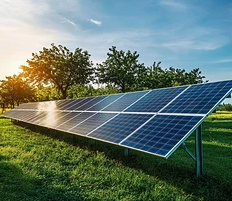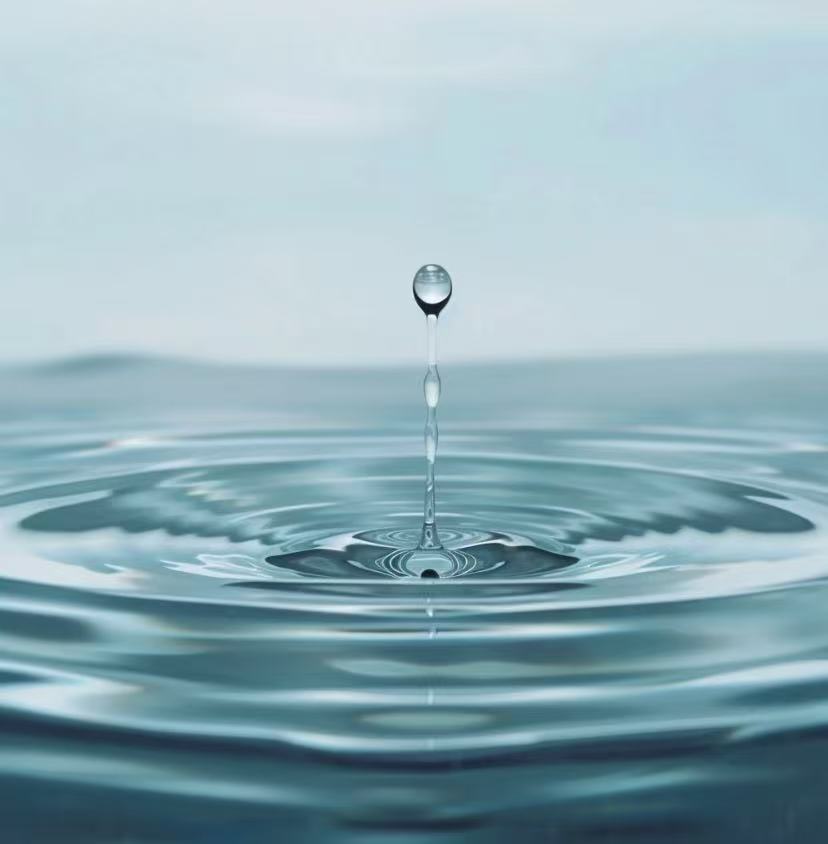Jun 13, 2025
Accurate measurement of soluble salt concentration in solutions is crucial in modern agriculture, environmental monitoring, and industrial production, and EC sensors are the key tool to achieve this goal. EC stands for Electrical Conductivity in English, which means electrical conductivity. EC sensors measure the conductivity of a solution to reflect the concentration of soluble salts in the solution.
一、 Working principle of EC sensor
EC sensors mainly work based on the conductive properties of solutions. When an electrode is inserted into a solution, ions in the solution move directionally under the action of an electric field, forming an electric current. Its conductivity is closely related to factors such as the concentration, type, activity, and temperature of ions in the solution.
In practical applications, EC sensors often use electrode method or electromagnetic induction method. The electrode method EC sensor consists of two or more electrodes. When an alternating voltage is applied across the electrodes, ions in the solution will migrate between the electrodes, forming a loop current. According to Ohm's Law, by measuring the voltage and current between the electrodes, the resistance of the solution can be calculated, and the conductivity value can be obtained. To avoid the influence of electrode polarization on measurement results, AC excitation signals are usually used. The electromagnetic induction method EC sensor does not require electrodes to directly contact the solution. It generates an alternating magnetic field around the solution to induce current in the solution, and then calculates the conductivity of the solution by detecting the secondary magnetic field. This method is suitable for measuring highly corrosive and scaling prone solutions, and can effectively avoid electrode contamination and corrosion problems.
Meanwhile, temperature has a significant impact on the electrical conductivity of the solution, with a change of approximately 2% in conductivity for every 1 ℃ change in temperature. Therefore, EC sensors usually have built-in temperature sensors to measure the temperature of the solution in real time, and correct the conductivity measurement value according to the temperature compensation formula to improve the accuracy of the measurement. The common temperature compensation formula is: EC25=ECT/[1+α (T-25)], where EC25 is the conductivity at 25 ℃, ECT is the conductivity at the measured temperature T, and α is the temperature compensation coefficient of the solution.
二、Performance characteristics: Excellent quality, trustworthy
1. High Precision Measurement
With the continuous advancement of manufacturing processes and materials science, the measurement accuracy of modern EC sensors is astonishing. Some high-end EC sensors have measurement errors that can be controlled within a very small range, which can meet the application scenarios that require extremely high data accuracy, such as the detection of drug purity in the pharmaceutical industry and the precise monitoring of chemical reaction processes in scientific research laboratories.
2. Quick Response
In many real-time monitoring scenarios, time is crucial. EC sensors can quickly sense changes in solution conductivity and transmit data in a very short amount of time. Taking online monitoring of water quality in industrial production as an example, once there is an abnormality in water quality, the EC sensor can instantly capture the change and issue an alarm in a timely manner, buying valuable time for production adjustment.
3. Wide Range Adaptability
Different application scenarios have varying requirements for the measurement range of conductivity. EC sensors have a wide range of measurement capabilities, from ultrapure water with extremely low conductivity to industrial wastewater and concentrated saltwater with high conductivity, all of which can be accurately measured. This wide range adaptability makes it a universal testing tool that spans multiple industries.
4. Stability and Reliability
EC sensors can work stably in harsh industrial environments with high temperature and pressure, as well as in chemical scenarios with acid and alkali corrosion. The special materials and design used effectively resist external interference, ensuring long-term stable output of reliable data, greatly reducing maintenance costs and data error risks.
三、The wide application scenarios of EC sensors
1. Modern Agriculture and Horticulture
EC sensors play an indispensable role in intelligent greenhouse planting and soilless cultivation. The nutrient solution for soilless cultivation contains various mineral ions required for plant growth, and the EC sensor can monitor the concentration of the nutrient solution in real time to ensure that it is within the optimal range for plant growth. When the conductivity is too high, it indicates that the concentration of nutrient solution is too high, which may cause water loss in plant roots; If the conductivity is too low, it means that there is insufficient nutrients, which affects plant growth. Through real-time monitoring and automatic adjustment, EC sensors help achieve precise fertilization, improve crop yield and quality, while saving resources and reducing production costs. In addition, in soil moisture monitoring, EC sensors can measure the content of soluble salts in soil, providing data support for the improvement of saline alkali land and rational irrigation.
2. Environmental monitoring
In the field of water quality monitoring, EC sensors can be used to detect the conductivity of Rivers and Lakes, groundwater, industrial wastewater and other water bodies. By analyzing the changes in water conductivity, the content of soluble salts, organic matter, heavy metal ions and other pollutants in the water can be preliminarily determined, providing a basis for water pollution warning and treatment. For example, when the conductivity of the water near the industrial wastewater discharge outlet suddenly increases, it may indicate a high concentration of pollutant discharge. In addition, in marine environmental monitoring, EC sensors can measure the salinity of seawater, providing important data for marine ecological research, ship navigation safety, and more.
3. Industrial Production
In industries such as chemical, food and beverage, and pharmaceutical, EC sensors are used for quality control in the production process. For example, in the pharmaceutical industry, the quality requirements for injection water and purified water are extremely high. EC sensors can monitor the ion impurity content in water in real time to ensure that the water quality meets pharmacopoeia standards. In food and beverage production, EC sensors can be used to monitor the conductivity of raw water, cleaning water, and product solutions, control the concentration ratio during the production process, and ensure the stability of quality. In chemical production, EC sensors can monitor the conductivity of the solution in the reaction kettle, reflect the reaction process and product concentration, and provide key parameters for process optimization and automation control.
四、Development Trend: Continuous Innovation, Leading the Future
With the vigorous development of Internet, big data, artificial intelligence and other emerging technologies, EC sensors are also evolving. In the future, it will move towards intelligence, miniaturization, and multifunctionality. Intelligent EC sensors will have functions such as self diagnosis, automatic calibration, and data analysis. Through connection with the Internet of Things, remote monitoring and intelligent management can be achieved; Miniaturization enables it to be applied to smaller spaces and scenes with strict volume requirements; Multifunctionality allows it to measure multiple parameters simultaneously, such as temperature, pH, etc., providing users with more comprehensive data information.
EC sensors, as a key detection tool, are playing an irreplaceable role in various fields with their unique charm and excellent performance. It not only brings convenience and security to our lives and production, but also provides a solid data foundation for technological innovation. I believe that in the future, with the continuous breakthrough of technology, EC sensors will shine even more brilliantly, creating a better world for us.
Read More

